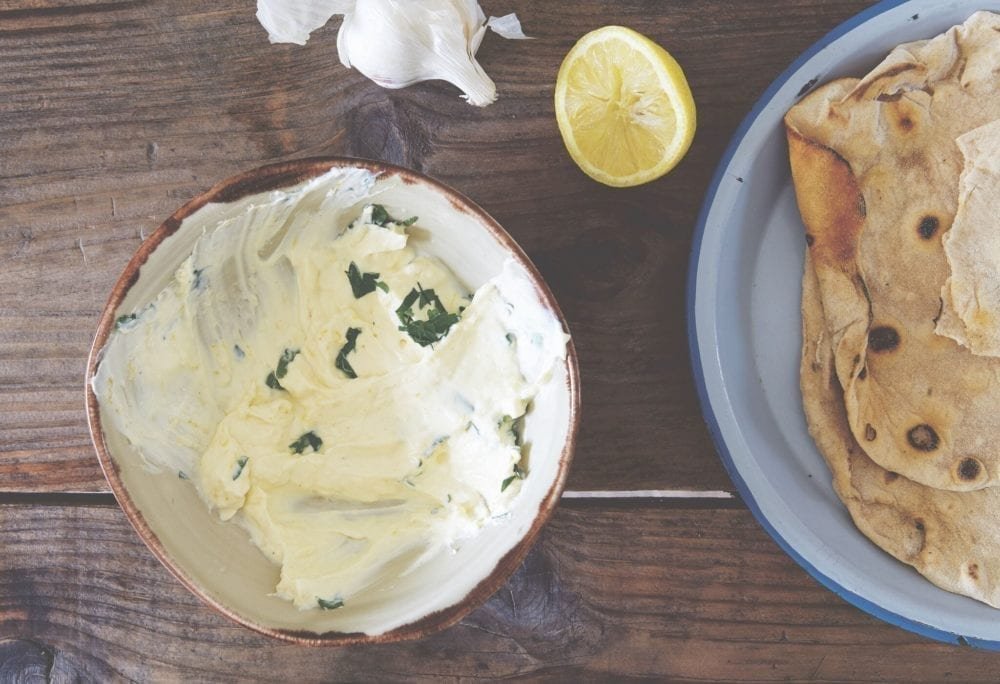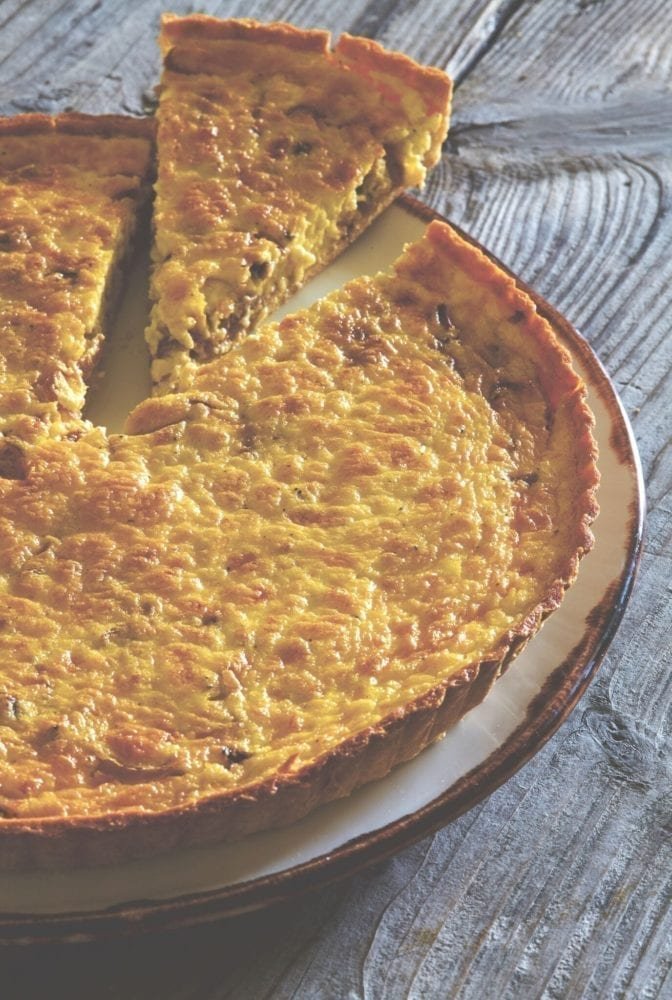This article first appeared in our spring ’18 issue of MyGreenPod Magazine, The Conscious Revolution, distributed with the Guardian on 04 May 2018. Click here to subscribe to our digital edition and get each issue delivered straight to your inbox
Cheese-making is a skill that requires lots of hard work and specialist equipment, right?
Well, not exactly, argues Steven Lamb. He says anyone can make their own dairy products, whether they live in the heart of the country or in a flat in the middle of the city. You just need milk, a few items of simple equipment, a little time and a bit of curiosity.
Steven Lamb lived at River Cottage HQ as the resident smallholder, and appears regularly in the TV series and online. The River Cottage ethos is about knowing the whole story behind what you put on the table; as Steven explains in the new guide from River Cottage,
it’s easy to take good-quality ingredients and turn them into something sensational.
Sunday Lunch at River Cottage – we paid head chef Gelf Alderson a visit
Cheese and onion tart
If there is a recipe that shouts more of the lost county of Lancashire than a cheese and onion tart, I will eat my proverbial flat cap – I would be discrediting my heritage if I did not include it! You have to resist the temptation to put bacon (or indeed potato) in this tart, and instead champion its simplicity. The addition of bacon would turn the tart into a quiche – which is a bit like calling Lancashire ‘Greater Manchester’. My recipe is inspired by one of Lancashire’s great chefs, Nigel Howarth, who helps to keep many of the region’s ingredients on the map.
SPECIAL EQUIPMENT
23cm loose-based tart tin
INGREDIENTS
Serves 6-8
For the pastry:
- 200g plain flour (plus extra for dusting)
- A pinch of sea salt
- 100g butter (diced)
- 2 medium eggs (beaten)
For the filling:
- 25g butter
- 2 large onions (peeled and thinly sliced)
- 3 medium eggs
- 300ml crème fraîche
- ¼ tsp freshly grated nutmeg
- 100g grated hard cheese (Lancashire of course!)
- 150g fresh goat’s curd cheese/li>
- Sea salt and freshly ground white pepper
METHOD
To make the pastry, sift the flour and salt into a bowl, then rub in the butter with your fingertips until it resembles fine crumbs. Add the beaten eggs and bring the dough together with your hands, adding a trickle of cold water if necessary. Knead the dough lightly until smooth and silky, then flatten to a disc, wrap in cling film and chill in the fridge for 20 minutes or so. Preheat the oven to 200°C/Gas mark 6.
Roll out the chilled dough on a lightly floured surface to about a 3mm thickness and use to line the tart tin; press the pastry into the corners and sides of the tin and make sure it extends above the rim by 5mm–1cm.
Line the pastry case with a sheet of baking parchment and add a layer of baking beans or dried pulses. Bake ‘blind’ for 15 minutes. Lift out the paper and beans and return the pastry case to the oven for about 5 minutes until the pastry is dry and lightly coloured. Remove from the oven and set aside.
Lower the oven setting to 180°C/Gas mark 4. Once the pastry has cooled a little, trim away the excess pastry from around the rim using a sharp knife.
To make the filling, melt the butter in a pan, add the sliced onions and sauté gently for 10–12 minutes until soft and lightly caramelised. In a bowl, mix the beaten eggs with the crème fraîche, nutmeg and some salt and white pepper.
Spoon the caramelised onions into the pastry case and scatter the grated cheese and goat’s cheese over them. Carefully pour on the egg mixture. Bake in the oven for 35-40 minutes or until the filling is set, with just a pleasing wobble.
Transfer the tart, still in its tin, to a wire rack and leave to cool for about 15 minutes before easing it out of the tin and serving warm.
 Play Video about This Rock Might Just Save The World
Play Video about This Rock Might Just Save The World Play Video about Play 2 hours of rock
Play Video about Play 2 hours of rock Play Video about Play 2 hours of brook
Play Video about Play 2 hours of brook Play Video about Play 2 hours of sheep
Play Video about Play 2 hours of sheep














































